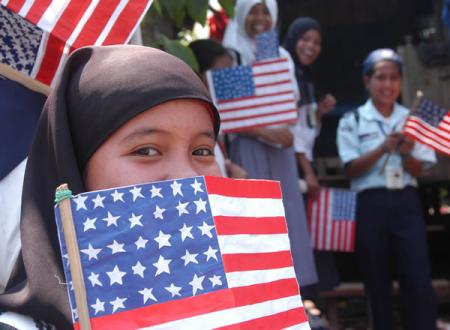
The presidential campaigns of 2008 were colored with episodes that may have made American Muslims wince. A woman at a McCain rally stuttered that the feared Obama was a secret Arab (an ethnic not a religious category), while McCain responded, “No, no ma’am, he’s not. He’s a decent family-man citizen.” A young Muslim woman at a college rally for Obama was asked not to stand behind the Senator so that she would not appear in pictures or video. No one wanted to come out and say it, but the Republicans were depending on the fear vote – or at least the anti-Muslim vote – to peel support away from Senator Barack Obama as the November 4 election approached. The Obama campaign was also noticeably cool toward Islamic figures, areas, and issues, fearing that a single photograph of Obama near a woman with a hijab or a public statement of support from an Islamic organization might sink the campaign. Nevertheless, now that the election is over many American Muslims and Muslims across the world are hoping that an Obama presidency will mark a new era of understanding between U.S. officials and followers of Islam.
American Muslim voters turned out for Obama in what look to be record numbers, despite the fact that his campaign was eager to emphasize his Christian credentials whenever the charge was made that Obama was a secret Muslim. Muslims may have been hurt by the cold shoulder but they seem to have been more worried about a continuation of the post-9/11 policies of the Republican lead executive branch. It was not until Gen. Colin Powell’s October 19 appearance on Meet the Press that a major American political figure criticized the latent suspicion of American Muslims that seemed to be poisoning both campaigns. The hope of the domestic Muslim community seems to be that an empowered President Obama will be more willing to show open support than was candidate Obama.



